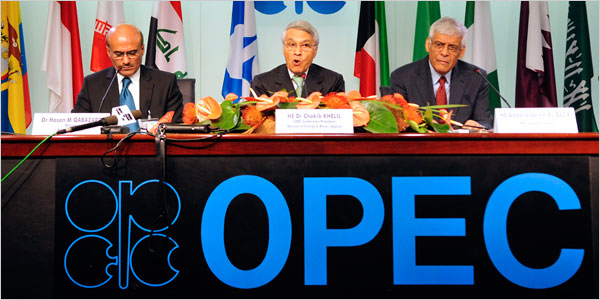Oil price hits 30-month high, after OPEC positive demand projection

The price of oil has hit a 30-month high following a positive demand outlook by the Organization of the Petroleum Exporting Countries (OPEC).
The price of a barrel of brent, the benchmark against which Nigerian crude is traded climbed 1.3 percent, to $70.25 a barrel, a level not seen since May 2019, having hovered around the $62-$67 range for over a week.
While this means more oil money for the Nigerian government, the euphoria may be short-lived because as it portends the federal government will have to spend more to keep the pump price of petrol stable at the current N162-N165.
At the OPEC+ meeting on Tuesday, members collectively agreed that the ongoing strengthening of market fundamentals is a clear sign of improvement and in oil demand.
Speaking at the meeting, the Secretary-General of OPEC, Mohammad Barkindo, said the increased economic growth from China, the United States, India, and the Eurozone, demand was expected to grow by 6 million barrels per day to around 96 million bpd on average for the year, an increase of 6.6 percent.”
He also stated that the market outlook for later this year means demand will surpass 99 mb/d in the fourth quarter, which would put OPEC back in the range of pre-pandemic levels.
Barkindo, who warned against complacency, stated that non-OPEC liquids production is now forecast to grow at a slightly slower pace than expected last month, rising by around 700,000 b/d in 2021 to an average of 63.6 mb/d.
According to him, the actions of the Declaration of Cooperation (DOC) have continued to support the rebalancing process, and have helped reduce the global supply by more than 2.9 billion barrels since May 2020.
“However, there continues to be significant overproduction by some of the participating countries. The overproduced volumes need to be accommodated to achieve the goals we have set for ourselves.
“In this regard, the 15th OPEC and non-OPEC ministerial meeting agreed to extend the very generous compensation period for overproduced volumes until the end of September 2021.
“Our continued contributions to sustainable oil market stability depend upon all participants achieving 100 percent conformity and, where necessary, working dutifully to compensate for overproduction,” he said.
